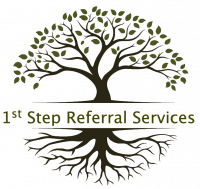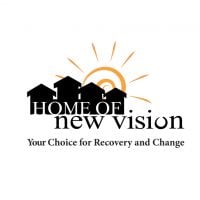Saint Joseph Mercy Hospital
Drug Rehab Center in Ann Arbor, Michigan
Saint Joseph Mercy Hospital in Ann Arbor, Michigan is a faith-based hospital that offers a wide range of medical services, including specialized addiction and substance abuse treatment programs, and has been recognized for its high-quality patient care by various industry organizations.
About
Saint Joseph Mercy Hospital in Ann Arbor, Michigan is a faith-based hospital that provides a wide range of medical services including acute care, rehabilitation, and outpatient services. Established in 1906, they have become a leader in the healthcare industry and are committed to providing quality services to the community that are personalized and compassionate.
Saint Joseph Mercy Hospital offers specializied services for addiction and substance abuse. Their inpatient treatment program uses a variety of evidence-based and holistic therapeutic approaches to address underlying causes of addiction and provides resources and support staff to assist with relapse prevention. Outpatient services include individualized counseling and therapy, group therapy, and case management to promote long-term recovery. In addition, the hospital offers educational programs to equip families and individuals with strategies to help them cope with the challenges of addiction.
Saint Joseph Mercy Hospital is accredited by the Joint Commission and certified as a Comprehensive Stroke Center. The hospital has been awarded the Malcolm Baldrige National Quality Award by the U.S. Department of Commerce for its commitment to high-quality patient care and exceptional healthcare services. Furthermore, Saint Joseph Mercy Hospital has been honored by Consumer Reports as one of the top hospitals in the country for treating substance abuse and addiction.
Genders
Ages
Modality
Additional
Conditions and Issues Treated
Levels of Care Offered
This center offers a variety of custom treatment tailored to individual recovery. Currently available are Inpatient, with additional therapies available as listed below.
Inpatient treatment centers offer a safe, secure, and often medically supervised environment for drug or alcohol-addicted individuals. Many of these facilities are equipped to provide detoxification, treatment for co-occurring mental health disorders, and aftercare programs.
The patient typically spends 28 to 30 days at the facility and will receive extensive drug counseling. They will also learn how to live without drugs and how to make the right decisions in life.
Therapies & Programs
Individualized Treatment is essential because it gives addicts the ability to participate in a program that meets their unique needs. An addict should work with professionals who understand what they’re going through, especially if the addict is actively using. Finding the right treatment program for an addict is difficult, but it’s even harder without communicating with those who have experience treating your specific situation.
Couples therapy is a treatment approach where the patients and their partners are engaged together. When a person becomes a victim of substance abuse, it affects the patient and his people, particularly his partner. Their relationship can become strained due to lack of communication, financial issues, loss of trust, lack of intimacy, and physical abuse in more severe cases. Couples therapy addresses these issues and tries to rebuild the trust between the partners. The partner’s involvement in the process will result in greater chances of treatment success and sustained recovery.
The therapies typically involve all family members, potentially including siblings, children, and parents who play a role in their daily lives. These sessions can be essential because they address past issues that may have affected an addict or alcoholic’s recovery process. They provide support during this time when it is needed most!
A family therapy session, often called a family meeting or intervention, is a necessary process that helps loved ones of addicts see their situation in a new light. It’s also one of the most challenging things families will ever have to do when they’re facing a loved one battling addiction or alcoholism.
Group therapy sessions provide recovering addicts with a chance to cope with everyday situations that many face. Group therapy sessions are held in rehab facilities, clinics, churches or community centers that offer drug addiction treatment.
People who attend these groups are encouraged to voice their feelings and support other addicts in recovery. This helps group members strengthen their own recovery program while cheering on others who are struggling with sobriety.
Cognitive Behavioral Therapy (CBT) is a highly effective treatment option based on the idea that how we feel, think and act all interact together. Our thoughts determine our feelings and behaviors; our feelings affect our thoughts, and our behaviors change our thoughts and feelings. CBT helps people explore their thoughts for problems (or false beliefs) that influence their mood and actions. By examining their thoughts and beliefs, people can recognize distorted or irrational and modify them to more realistic, positive ones. CBT is very goal-oriented, which means that the therapist and patient work together on a specific problem while learning to become more adept at solving future problems.
CBT works well with a broad range of people, including those with depression, anxiety disorders, eating disorders, and problems with anger. In addition to helping a client focus on thoughts that can be changed, CBT also allows them to take an active role in their treatment. This is called a collaborative approach because both patient and therapist work together to produce the best possible results.
CBT is based on cognitive learning theory, which says that our behavior is a learned response to our environment. Cognitive refers to thoughts and beliefs, while behavioral relates to actions or deeds. CBT helps people learn ways of behaving to improve their quality of life by focusing on specific problems or goals they want to achieve. Sometimes, CBT is used alone; other times, it is combined with medications or brief counseling techniques such as solution-focused and motivational interviewing to achieve optimal results for the patient.
Patient Experience
Experiential Therapy at Saint Joseph Mercy Hospital
Drug addicts can benefit from experiential therapy, which involves real-time activities to process trauma and emotions. This type of therapy is available at Saint Joseph Mercy Hospital and can help reduce the need to resort to drugs and alcohol. Activities may include role-playing, use of props, and others. The individual learns to release suppressed thoughts that lead to negative feelings and embrace the present moment. Experiential therapy is beneficial in treating various disorders, including drug addiction, eating, and behavioral disorders.
Payment Options Accepted
For specific insurance or payment methods please contact us.
Is your insurance accepted?
Ask an expert, call (888) 674-0062
Saint Joseph Mercy Associated Centers
Discover treatment facilities under the same provider.
- Saint Joseph Mercy Adolescent Partial Hospitalization in Ann Arbor, MI
- Saint Mary Mercy Hospital - Behavioral Health Unit in Livonia, MI
- Saint Mary Mercy Hospital - Department of Behavioral Medicine in Livonia, MI
- Saint Joseph Mercy Health System - Behavioral Health in Ann Arbor, MI
- Saint Mary Mercy Hospital Dept of Behavioral Medicine in Livonia, MI
Learn More About Saint Joseph Mercy Centers
Additional Details
Specifics, location, and helpful extra information.
Ann Arbor, Michigan 48103 Phone Number(734) 712-6104 Meta DetailsUpdated November 25, 2023
Staff Verified
Patient Reviews
There are no reviews yet. Be the first one to write one.
Ann Arbor, Michigan Addiction Information
Michigan has the second-highest rate of drug and alcohol abuse in the nation. Heroin is linked to more than 50% of the state's hepatitis C cases. Marijuana is the drug most often associated with crimes in Michigan, followed by methamphetamines. Opioids alone are responsible for almost 20% of all drug overdose deaths in Michigan.
Ann Arbor, Michigan has a moderate level of drug addiction and abuse problems. Over 9,000 people are addicted to drugs and over 16,000 abuse drugs. Cocaine is the most commonly abused drug in Ann Arbor, followed by heroin. To find the best drug treatment facility in Ann Arbor, Michigan, you can use a variety of resources. You can browse through our online directory of addiction treatment centers.
Treatment in Nearby Cities
- Plymouth, MI (11.9 mi.)
- Hancock, MI (414.2 mi.)
- Portland, MI (76.3 mi.)
- Dowagiac, MI (127.4 mi.)
- Roscommon, MI (161.5 mi.)
Centers near Saint Joseph Mercy Hospital
The facility name, logo and brand are the property and registered trademarks of Saint Joseph Mercy Hospital, and are being used for identification and informational purposes only. Use of these names, logos and brands shall not imply endorsement. RehabNow.org is not affiliated with or sponsored by Saint Joseph Mercy Hospital.










